Let me preface this article by saying that I have a great deal of respect for the county commissioners. Anyone who thinks their job is easy needs to spend some time in the commission meetings. They make a lot of difficult decisions and citizens of Bourbon county should be very proud of their elected officials in this office. Even if you disagree with a particular decision, I think any reasonable person would have to agree that they are doing a very good job.
That said, I do believe that the decision to conduct two thirty minute executive sessions to discuss the tax sale on October 7th, was not in the best interest of the citizens of Bourbon county. Discussions related to taking people’s property away from them need to be done in the most open manner possible.
In the commissioner’s defense, their legal council for the tax sale suggested the executive session, but ultimately the decision belongs to the commissioners as there is no KOMA (Kansas Open Meetings Act) requirement to go into executive session for these types of matters.
Does a public body have a duty to close certain discussions? Not under the KOMA. The KOMA allows executives session discussions; it does not require them. (source: attorney general website)
On Friday, I asked the commissioners to reveal what had been discussed in the executive session–particularly anything that would be beneficial for the public to know.
This request was made based on the fact that commissioners are free to share what goes on in executive sessions according to the attorney general:
Does the KOMA require members of a public body to refrain from publicly revealing matters that were discussed while in executive sessions?
No. Some other laws, or considerations such as fiduciary duty, personal privacy rights, or contracts, may require or influence such confidentiality. But the KOMA itself does not require that the topics listed in K.S.A. 75-4319 always be kept private. (source)
Part of my logic in asking for that information is that KOMA violations that do not impede the public’s right to know, are deemed technical violations. The big advantage of having a technical violation where the public has been informed is that such a disclosure might prevent the commission from being fined $500 each, if there was indeed a violation of the law.
The court will not void any action and will overlook technical violations of the law if the spirit of the law has been met, there has been a good-faith effort to comply, there was substantial compliance with the KOMA, no one was prejudiced, and the public’s right to know had not been effectively denied. (source)
The commission felt that the discussion needed to be kept secret and declined to reveal what was discussed.
In this article, I want to examine a bit of what happened at that meeting an look at the legalities regarding when and how an executive session can be conducted for attorney-client privilege issues.
Dan Meara is the attorney who will be conducting the tax sale for the county. On October 7th, there were a handful of people attending who were there mainly to find out more about the property tax and tax sale. Mr. Meara suggested that the commissioner’s go into executive session to discuss the tax sale and that Susan Quick be present.
To go into executive session, a body that is subject to Kansas Open Meetings Act must make and pass a motion that gives the legal basis for the executive session along with the subject to be discussed and how long the session will last. After some discussion they agreed that the exception was “attorney/client privilege” and the subject was “tax sale”.
KSA 75-4319 does allow executive session for attorney client privilege for “consultation with an attorney for the body or agency which would be deemed privileged in the attorney-client relationship.” So what constitutes a privileged relationship?
The attorney general website gives three criteria that must be met in order for their to be a privileged relationship.
- The body’s attorney (or attorneys) must be present;
- The communication must be privileged, and
- No other third parties may be present.
Acting as the attorney for the tax sale, Mr. Meara certainly falls into the category of attorney for the body, so the question becomes whether or not discussion of the tax sale is privileged information. At first it seems it would not be privileged information because of the public nature. However, other attorney general’s website says the definition of privileged communication rests entirely with the client and there is a great deal of leeway in what can be discussed with the attorney in an executive session as long as a privileged relationship exists.
Confidentiality can attach to any communication between an attorney and a client wherein legal advice or assistance is sought or given, or information imparted in order to facilitate such advice or assistance. With very limited ethical exceptions, the client alone can decide whether to waive such confidentiality. (source)
However, the attorney general has also issued opinion 82-247 basically stating that if a body wants to go into executive session, they need to have a very well thought out reason for it. The weight of an opinion is much greater than text from the attorney general website, so the opinion should be what determines the actions of elected officials.
Since exceptions to the general policy favoring open meetings will be construed narrowly, legislative and administrative bodies or agencies would be well-advised to exercise the right to an executive recess for attorney-client communications very judiciously. … In addition, the nature of the communication should “be of a confidential character” and so regarded at least by the governmental body of agency.
There are obviously many situations that call for attorney-client privilege. If the county is being sued for millions of dollars, it is in the public’s best interest for discussions of the legal strategy to not be a matter of public record.
However, I cannot think of any reason why discussion of the tax sale would “be of a confidential character” other than the fact that someone wanted to keep them from the public. A large group of people may lose their property and have it auctioned off by the county. That is an action that should be done in the public eye and subject to public scrutiny–not something that is handled in secretive sessions.
Now, it is easy to say that something should be open without knowing what was being discussed. Just because it is hard to imagine a discussion where it was in the public interest to keep the tax sale topic out of the public record does not mean such a discussion could not exist. So lets assume that, hypothetically, the discussion did fall into the narrow allowable instances of attorney-client privilege and the matters discussed were of “confidential character.” In other words, lets assume that any reasonable person who knew what was discussed would agree that the meeting should have been closed.
Under that hypothetical scenario, would the executive session have been legal?
The law recognizes that things that fall under attorney-client privilege should not be made public, so it places an additional criteria on how executive sessions must be conducted when they are using the “attorney-client privilege” exception to KOMA. This is the requirement that no other third parties may be present. This makes sense because the attorney will not talk about confidential matters regarding their clients. The client is allowed to discuss matters that were discussed in executive session, but since they are the client, that is their prerogative. However, if you have a third party present, they are not restricted in communicating the contents of the meeting. So the presence of a third party basically means that the subject matter is not confidential enough to be fall under this exception to KOMA. And if it isn’t confidential, it should be available to the public.
So who is a third party?
The 92-56 opinion by the attorney general says:
K.S.A. 75-4319(b)(2) may only be used to close meetings if the attorney for the body is present, if persons other than the client and the attorney and his or her agents are excluded from the executive session, and if the communication in the executive session is privileged in nature.
This gets a little difficult because “other than the client and the attorney and his or her agents” is not clear as to whether or not the agents refer to the client’s agents or the attorney’s agents. A few sentences before this passage, the “client” is referred to as a “body” so the sudden shift to “his or her” seems to indicate reference to the attorney’s agent. This would meant the attorney could bring a paralegal, stenographer or other necessary staff to a closed executive session for attorney-client privilege.
Another opinion 82-247 from the attorney general confirms the above interpretation.
However, the attorney-client privilege may not be invoked if the attorney is not present, or if persons, other than the attorney and his or her agents, are parties to the communication.
So it would appear that the commission is not allowed to have other people in the room during an executive session called because of the attorney-client privilege exception like they are for other executive sessions.
So was Susan Quick (the county treasurer) allowed to be in the meeting?
Back to the 92-56 opinion, it talks about the “attorney for the body” and then mentions the client. The most reasonable explanation seems to be that the body is the client. In this case if the county commissioners are the body in question, it seems they would be considered the client.
Such bodies may include in some executive sessions those individuals whom the body determines will assist with the executive session discussion. Mere observers may not attend executive sessions. Moreover, K.S.A. 75-4319(b)(2) may only be used to close meetings if the attorney for the body is present, if persons other than the client and the attorney and his or her agents are excluded from the executive session, and if the communication in the executive session is privileged in nature.
According to an outline of the KOMA regulations:
Who can be present in an executive session–only the members of a public body have the right to attend executive session. (AG Opin. No. 86-14).
- Mere observers may not attend. Inclusion of general observers means the meeting should be open to all members of the public. (AG Opins. No. 82-176; 86-143; 92-56).9
- Persons who aid the body in its discussions may be discretionarily admitted. (AG Opin. No. 91-31).
- Johnson County school district; members of advisory boards have no right to attend. (AG Opin. No. 86-143).
- County clerk has no right to attend executive sessions. (AG Opin. No. 87-170).
- Non-clients cannot attend executive sessions for attorney-client privileged communication. (AG Opin. No. 82-247) (source)
Whoever is defined as the “client” obviously has the right to attend a meeting with their attorney. Point four seems to indicate that the county clerk is not part of what is defined as the “client” which fits within the idea that the client is the commissioners. If the clerk is not considered a “client” it would be illogical to assume that the county treasurer is considered the client along with the commissioners for the purpose of county commission meetings.
Note: The part above is where I found the least amount of clear information. If you find an error in my logic or laws/opinions that I have overlooked, please correct me in the comments and I will do my best to rectify the situation quickly.
When I asked about the legal basis of having the treasurer in the meeting, I was told the commissioners were allowed to bring in people who could aid their discussion. That corresponds to point two. However, point five specifically over-rides point two when attorney-client privilege is the exception used to invoke the executive session. It does apply in other situations where executive session is invoked. For example, when discussing employment matters related to non-elected employees.
The only way I can possibly see that having the treasurer in the meeting would have been legal would have been to consider the treasurer within the definition of “client”. However, if that is the case, then there was no reason for the county clerk to leave because she would be considered a “client” as well–as would any elected county official and possibly all the county employees. In fact, everyone in Bourbon county could in some way be considered a “client” of a lawyer working or the county.
As far as I can find, all the laws and attorney general opinions seem to indicate that the executive session should not have been used due to the general nature of the topics being discussed. Further, even if there was a legitimate reason for a closed session, the presence of the county treasurer appears to have made the legal basis for the executive session questionable.
However, even if it was legal to use attorney-client privilege and even if the inclusion of the treasurer was acceptable, government in Kansas is supposed to be open. If the spirit of open government is being followed, then situations like this should never happen. The default position should be to keep everything open with the rare exception where it is in the public interest to keep something out of the public record. In those cases the topic given for going into executive session should be specific enough that any reasonable person can see the need for a private discussion. “Tax sale” is not a subject with enough specificity to do that.
Note: If I have made any errors in how I interpreted the law or attorney general opinions, please leave me a comment and I will do my best to correct things as quickly as possible.
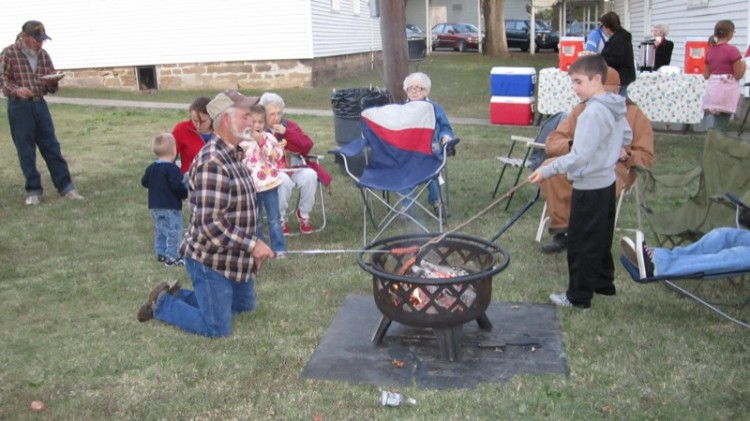


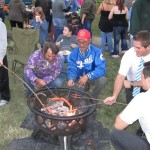

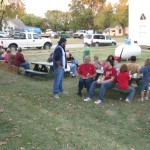

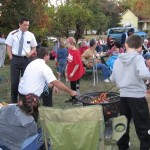

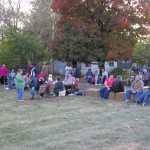



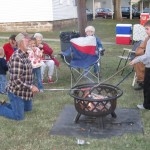
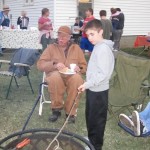
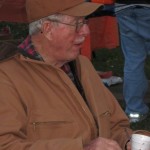

















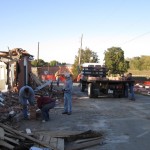













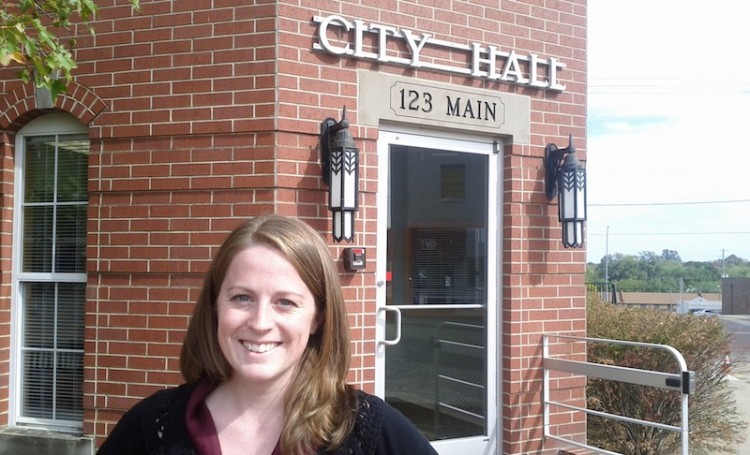
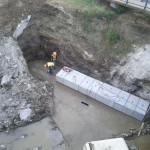



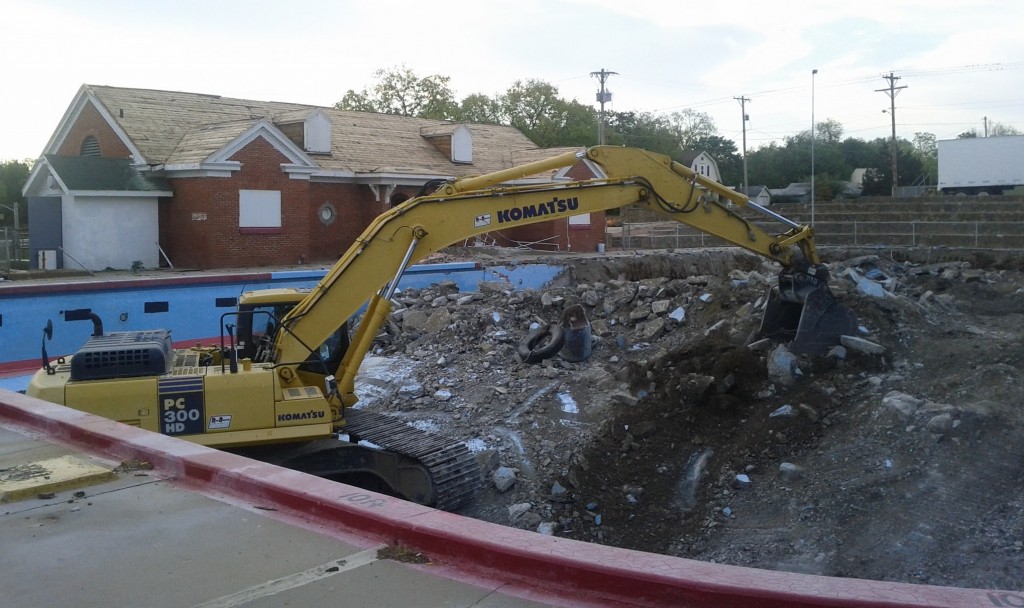
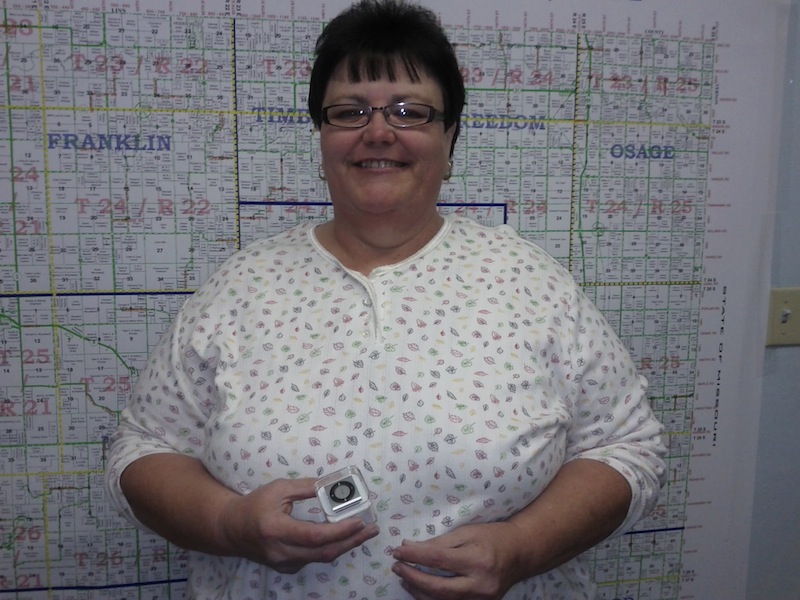 FortScott.biz will be doing some more giveaways in the next few months. Be sure to signup for our emails so you’ll be entered in the upcoming contests.
FortScott.biz will be doing some more giveaways in the next few months. Be sure to signup for our emails so you’ll be entered in the upcoming contests.